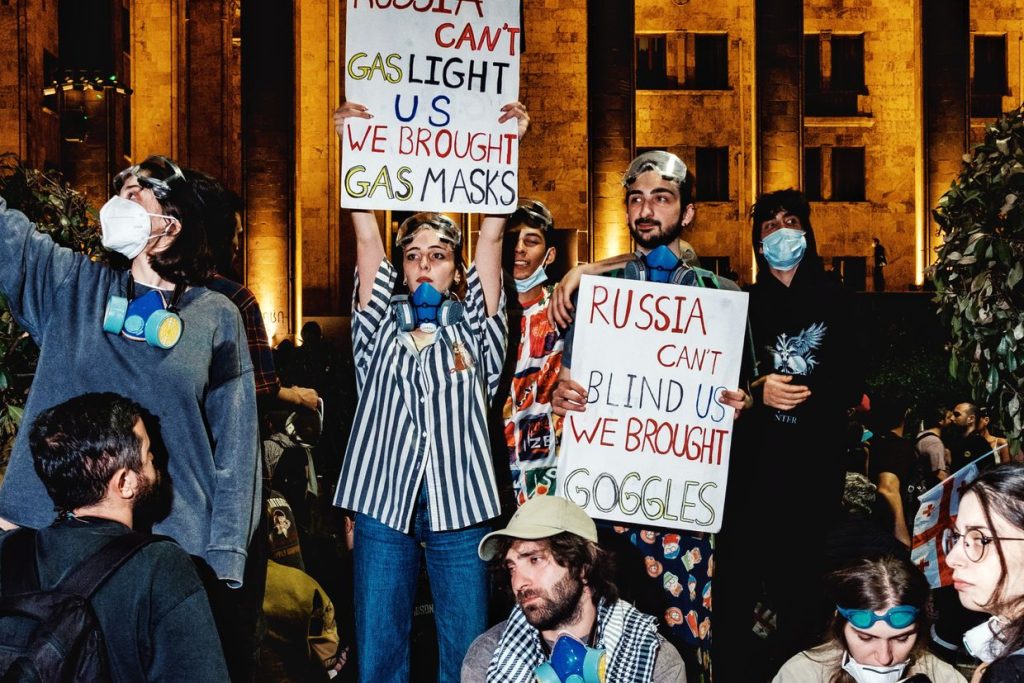Protests have erupted in Georgia over a controversial foreign agents law proposed by the ruling Georgian Dream party. The law would require organizations receiving foreign funding to be labeled as foreign agents, sparking concerns about stifling civil society and independent media. The protests have grown into a larger discontent against the government’s direction, with fears that Georgia may be shifting closer to Russia instead of its promised European path. Georgian Dream’s control over the government, led by Bidzina Ivanishvili, has raised suspicions of the country moving away from EU integration towards Russian ties. The upcoming parliamentary elections in October will be crucial in determining Georgia’s future trajectory.
Georgia’s history of conflict with Russia, including the Abkhaz War and the 2008 war, has influenced its desire for European integration. The Rose Revolution in 2003 led to a shift towards the West, with efforts to distance from Russia’s sphere of influence under President Mikhail Saakashvili. However, the defeat in the 2008 war and subsequent financial crises weakened the ruling party, leading to the rise of Georgian Dream in 2012. Bidzina Ivanishvili’s control over the party has raised concerns about its true intentions, with suspicions of a shift towards closer ties with Russia. Despite initial promises of EU integration, recent actions by Georgian Dream suggest a divergence from the European path.
The influence of Bidzina Ivanishvili, Georgia’s richest man and a key figure in Georgian Dream, has been a subject of debate. His ties to Russia, including business interests, raise questions about the party’s true intentions regarding EU integration. Despite initial promises, the party’s actions lean towards pro-Russian policies, prompting concerns of democratic backsliding. Crackdowns on media, NGOs, and political opposition, including imprisonment of UNM members, indicate a shift away from democratic values. Pursuits against Saakashvili’s associates and diplomatic disputes with Ukraine further highlight a divergence from the European path.
The proposed foreign agents law in Georgia has triggered massive protests, reminiscent of similar demonstrations in 2023 that led to the withdrawal of the bill. Georgian Dream’s decision to reintroduce the law in April has sparked widespread anger and discontent among Georgians. Despite warnings from the West about the repercussions of passing the law, the government persists in its efforts. The escalation of violent tactics and rhetoric from Georgian Dream, including accusations of Western interference and crackdowns on protesters, has further fueled public resentment. The determination of protesters, despite harsh police responses, reflects a deepening divide between the government and the public over the country’s future trajectory.
The defiant stance of protesters in Georgia against the foreign agents law and the government’s repressive tactics has exposed a growing rift in the country. The continued support for Ukraine and opposition to Russian influence in the region reflect a broader sentiment in Georgia towards maintaining ties with the West. Georgian Dream’s disregard for public opinion and the warnings from the EU signals a troubling shift away from democratic values and EU integration. The upcoming parliamentary elections will be a pivotal moment for Georgia as it navigates between its European aspirations and the influence of pro-Russian elements within the ruling party. The ongoing protests serve as a stark reminder of the challenges facing Georgia in defining its future path.


